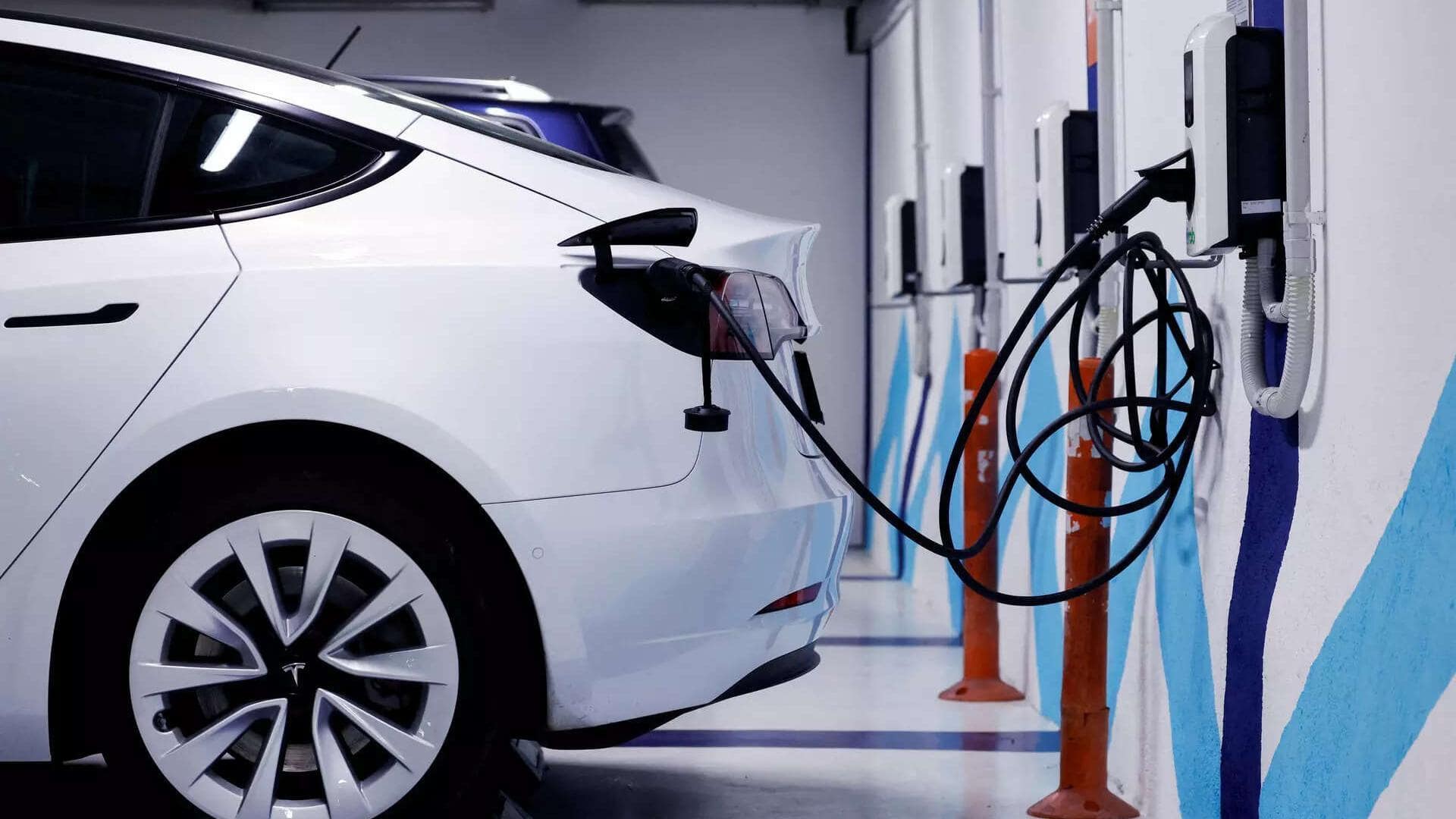
Budget 2025: EVs are set to become cheaper in India
What's the story
In a major move, the Indian government has announced huge duty exemptions in the Union Budget for 2025-26 to boost local production of lithium-ion batteries for electric vehicles (EVs).
The plan includes a full waiver of basic customs duty on an additional 35 capital goods used in battery manufacturing.
The customs duty on scrap of lithium-ion batteries and critical minerals such as cobalt and copper has also been removed.
Impact assessment
Budget measures expected to reduce battery production costs
The newly announced budget measures are expected to drastically reduce the cost of making batteries domestically. They are also expected to improve the availability of key raw materials for manufacturing.
Strategic move
Government aims to secure raw material availability
The Finance Minister also proposed full exemption on cobalt powder and waste, scrap of lithium-ion battery, lead, zinc, and 12 more critical minerals.
This move is aimed at ensuring their availability for manufacturing in India.
Before this proposal, the customs duty on waste and scrap of lithium-ion battery and cobalt powder was 5%, while that on several critical minerals was between 2.5% and 10%.
Import dependency
EVs are crucial for India's low-carbon future
Currently, EVs in India largely rely on imported batteries from China, Japan, and South Korea.
The government is eager to localize cell manufacturing as locally produced lithium-ion batteries could boost EV adoption and reduce import dependency.
However, the biggest hurdle for domestic lithium-ion battery production is the availability of raw materials due to limited reserves of minerals like lithium, cobalt, nickel, and graphite.
Market response
Battery stocks surge following budget announcements
Following the budget announcements, shares of battery companies such as Exide Industries, Amara Raja Energy, and HBL Power Systems witnessed a major surge in trade.
The duty exemption not only incentivizes local manufacturing but also encourages the use of recycled material.
This could pave the way for sustainability and lesser reliance on expensive imports while possibly enabling battery firms to offer more competitive pricing in the booming EV market.